Introduction
The Harvest Right Home Freeze Dryer (MSRP: from $2,695) is a freeze dryer designed for at-home, personal use by backpackers and anyone else with a need to preserve food in a lightweight fashion for long periods of time. It uses a 110-volt outlet, ships with four trays, weighs 112 pounds (51 kg), and can freeze dry 7-10 pounds (3-5 kg) of food at a time. The vacuum pump weighs an additional 35 pounds (16 kg).
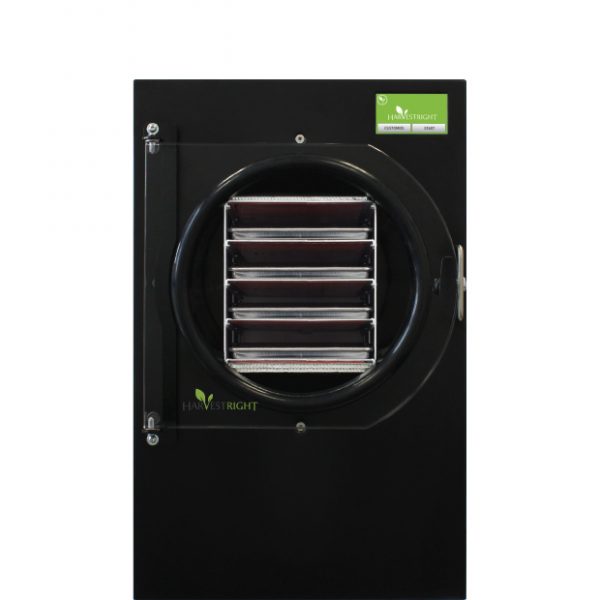
Freeze-drying addresses two problems for backpackers: weight and spoilage. Heat-assisted dehydration does this too but is not as effective. Freeze-drying also does a better job than dehydration of preserving flavor and nutrition and renders food easier to rehydrate. There are good reasons why freeze-dried meals are so popular among backpackers.
However, freeze-drying requires specialized equipment that is quite expensive. For most of us, the only way to get freeze-dried meals is to buy them already prepared.
The Harvest Right Home Freeze Dryer is targeted at consumers (not necessarily just backpackers) who want to preserve substantial amounts of food for personal use. Backpacking Light owns one of these units. I have been putting it through its paces so that you can judge whether to consider getting one yourself.
In this First Looks review, I’ll give a top-line summary of operation and performance. In later articles, I’ll explore the science and technology of freeze-drying, and share some recipes that work particularly well.
Highlights
- consumer-friendly home freeze-dryer system
- run capacity (medium model) is 7 – 10 pounds (3 – 5 kg) of fresh food
- programmable for solid or liquid foods
- 24 – 36 hour batch run time
- touch-screen interface, walkaway operation
- unit size: 18 x 21 x 29 inches (46 x 54 x 72 cm), 112 pounds (51 kg)
- complete system list price $2,695
Testing Context
I got this unit about a month before continuing my MYTH (multi-year thru-hike) of the Pacific Crest Trail, set it up in my garage, and prepped a number of freeze-dried meals for resupply.
I returned in September at peak harvest time in Colorado and was able to freeze-dry a number of fresh foods (tomatoes, peppers, corn, apples, garlic, etc) for home use as well as for future backpacking trips.
First Impressions
- The operation of the Harvest Right Home Freeze Dryer is simple and straightforward. Using the touchscreen interface, you choose liquid vs. non-liquid food type and then pre-frozen vs. not-frozen. After that, you can walk away and come back the next day or evening to collect your freeze-dried food.
- The unit appears to be very solidly built, befitting its hefty weight. Components appear to be of high quality. This is important because durability is a key factor in determining whether the unit delivers adequate value for the substantial investment required.
- I was able to successfully dry a range of foods – not only fruits, grains, veggies, and meats, but yogurt, smoothies, and ice cream sandwiches. I learned a few best practices along the way, which will be incorporated into future articles.
- Entire meals can be prepared in the freeze dryer (as opposed to using dehydration, which requires ingredients to be dehydrated individually). In addition to standards like chili, take-out meals such as sesame tofu and spaghetti Pomodoro from local eateries worked well. In fact, more than well – those meals were downright awesome. The possibilities here are pretty much endless.
- Rehydration of foods was comparable to that of commercially prepared meals: add an appropriate amount of hot water and wait a few minutes. I also found (because I ran low on fuel) that cold-soaking home freeze-dried foods works great. Rather than the hours required to reconstitute most dehydrated foods by cold-soaking, my freeze-dried meals rehydrated in 5-20 minutes in cold water.
- Some maintenance of the unit is required, chiefly draining condensed water from the vacuum pump and topping off with fresh oil after every run. Other than that, keeping the door gasket wiped clean is all that is required.
- The unit – specifically, the vacuum pump – is noisy. You want to place it in a garage or shed, not in your house. Those who wear earplugs or use a noise machine in the bedroom may not mind.
- The capital costs for freeze-drying are 5 – 50X that of heat-assisted dehydration, but the operational costs are similar. You’ll need to process a lot of food to justify the initial outlay.
Photos
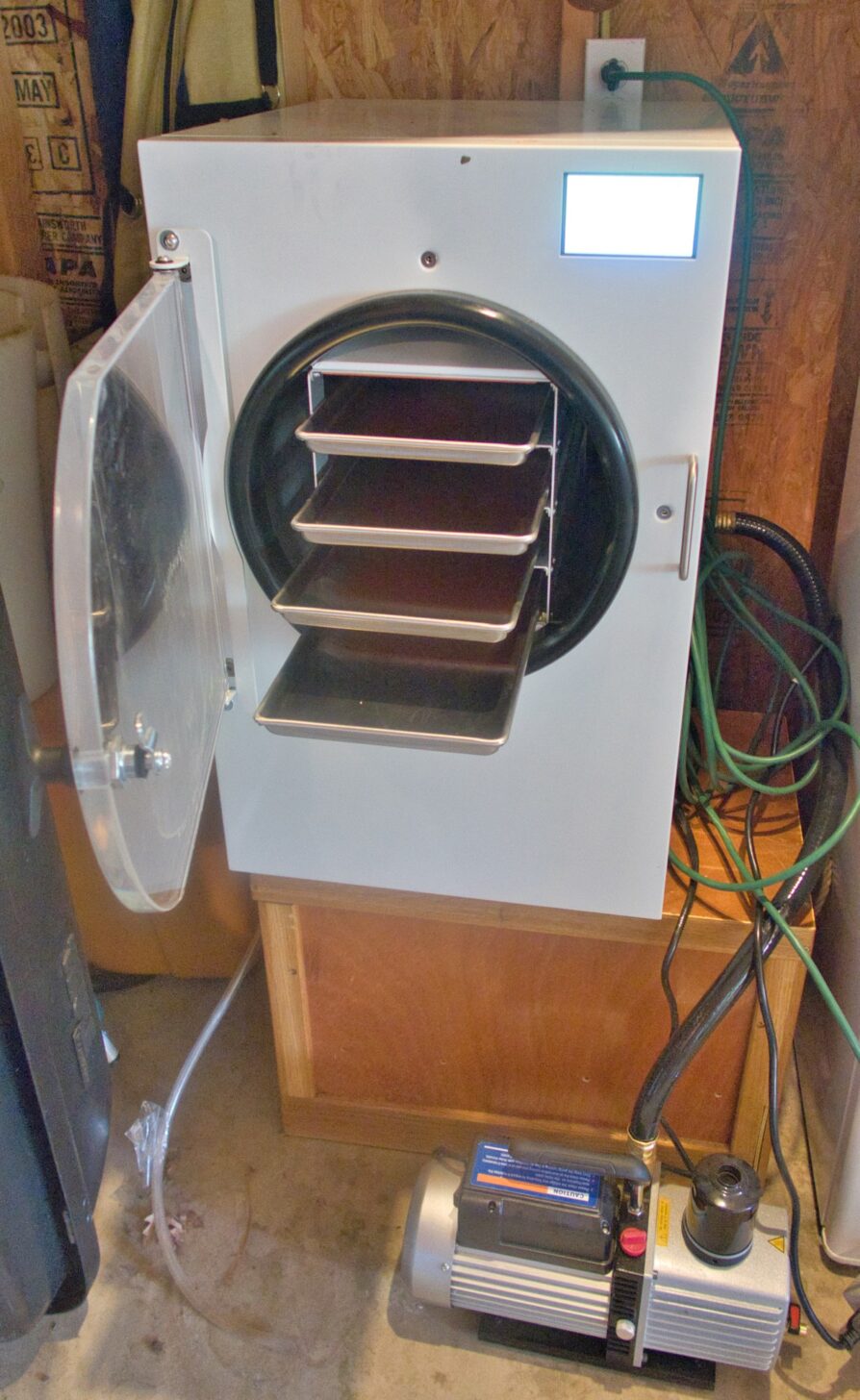
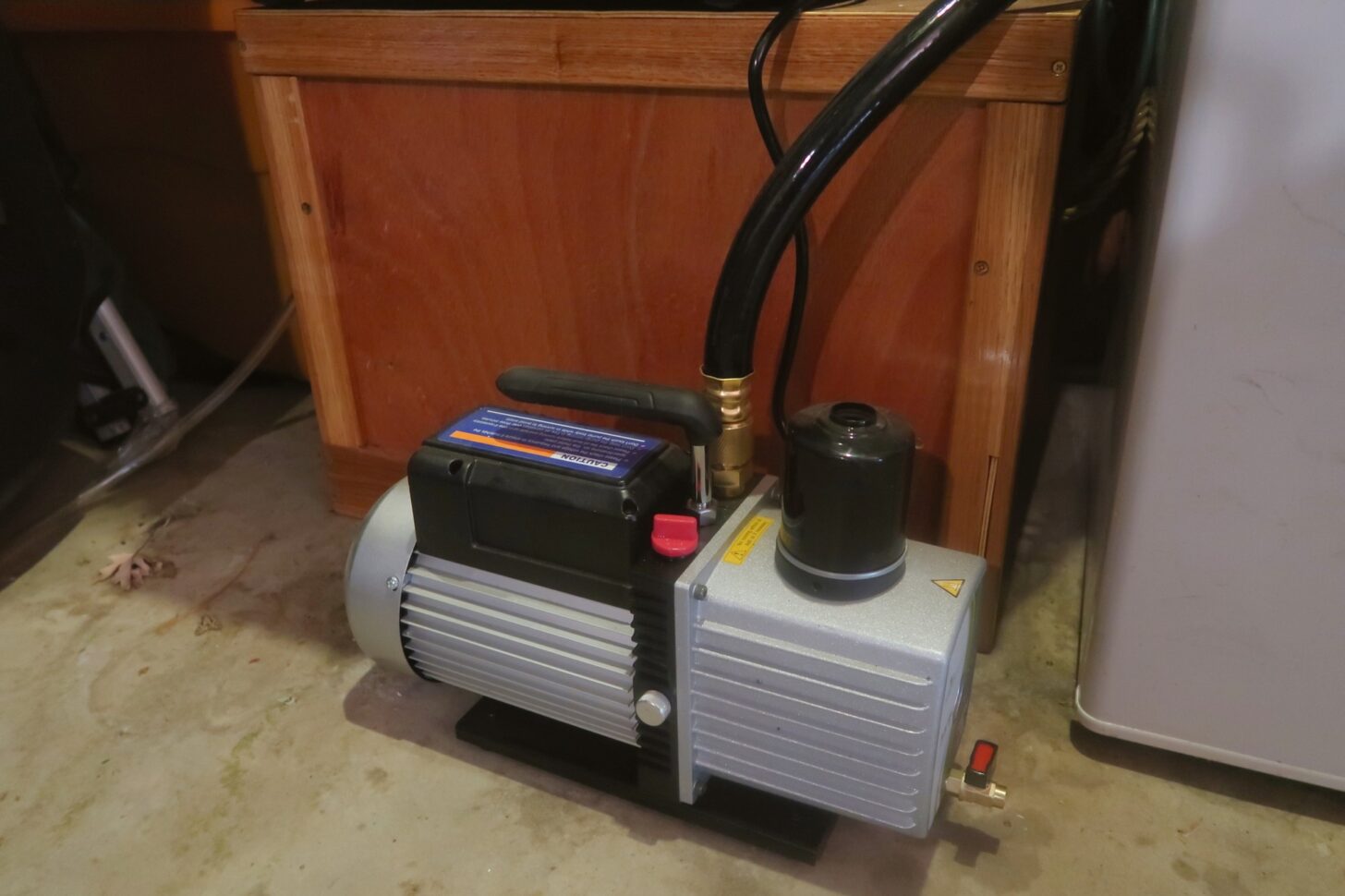
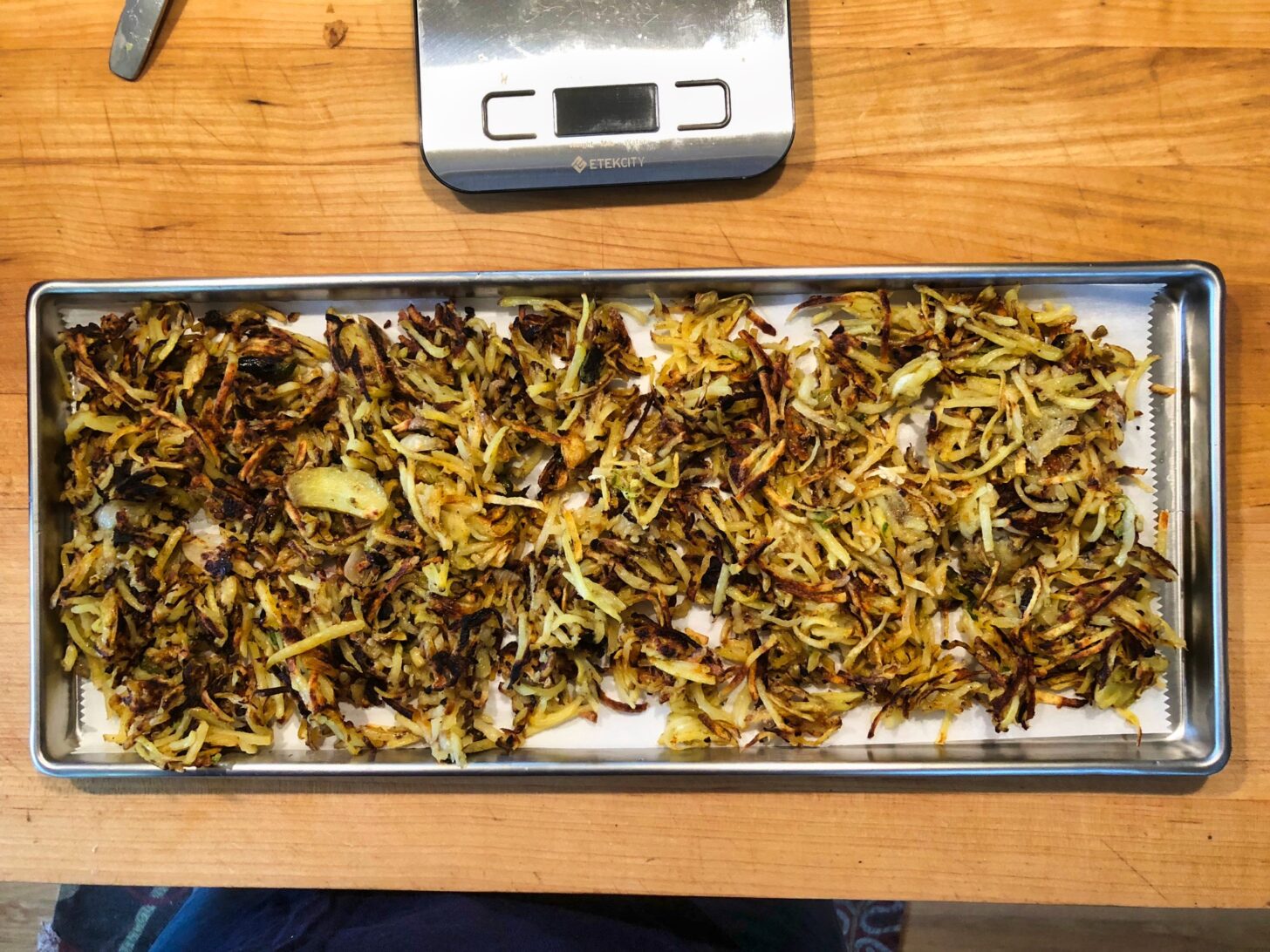
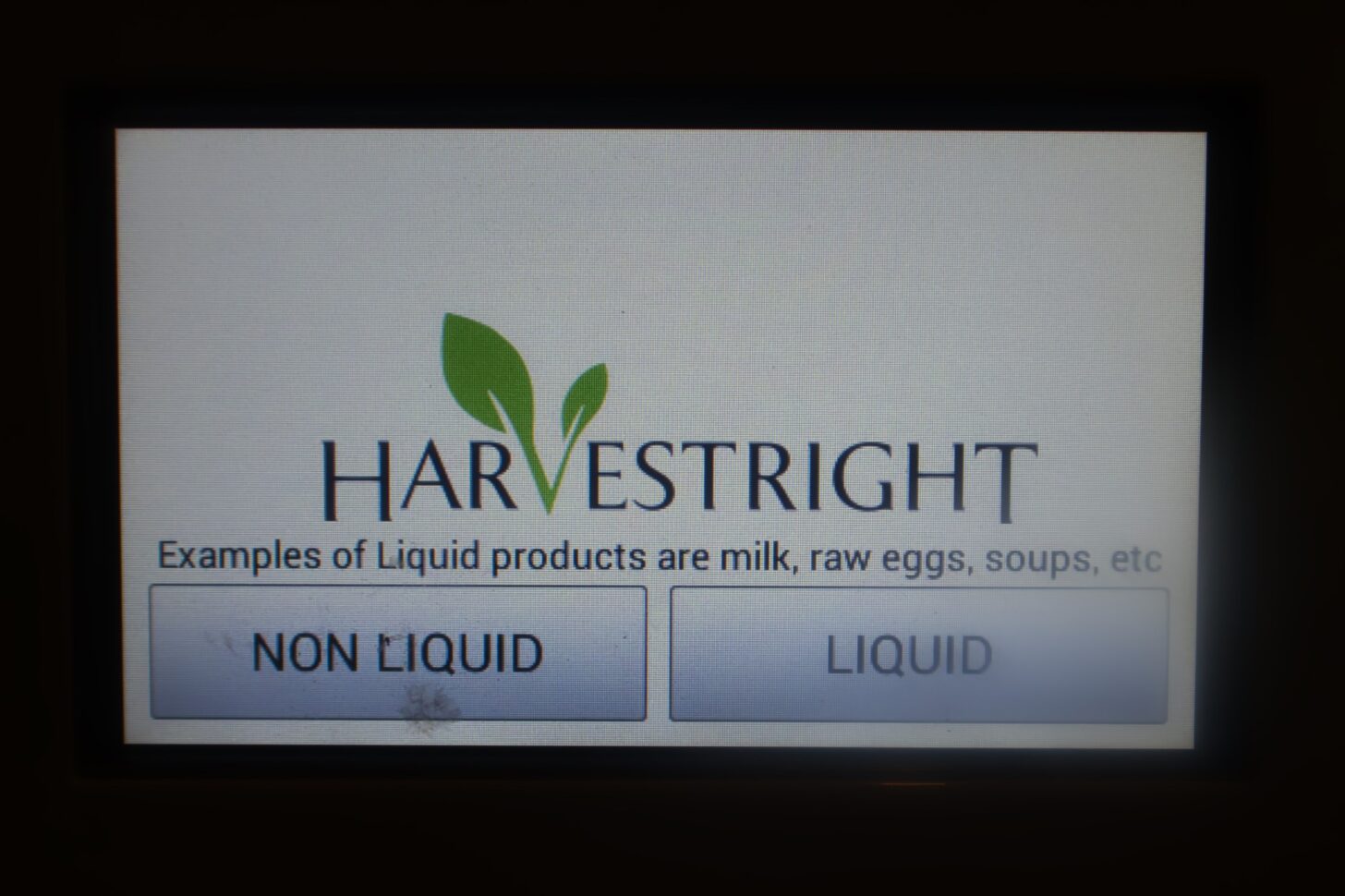
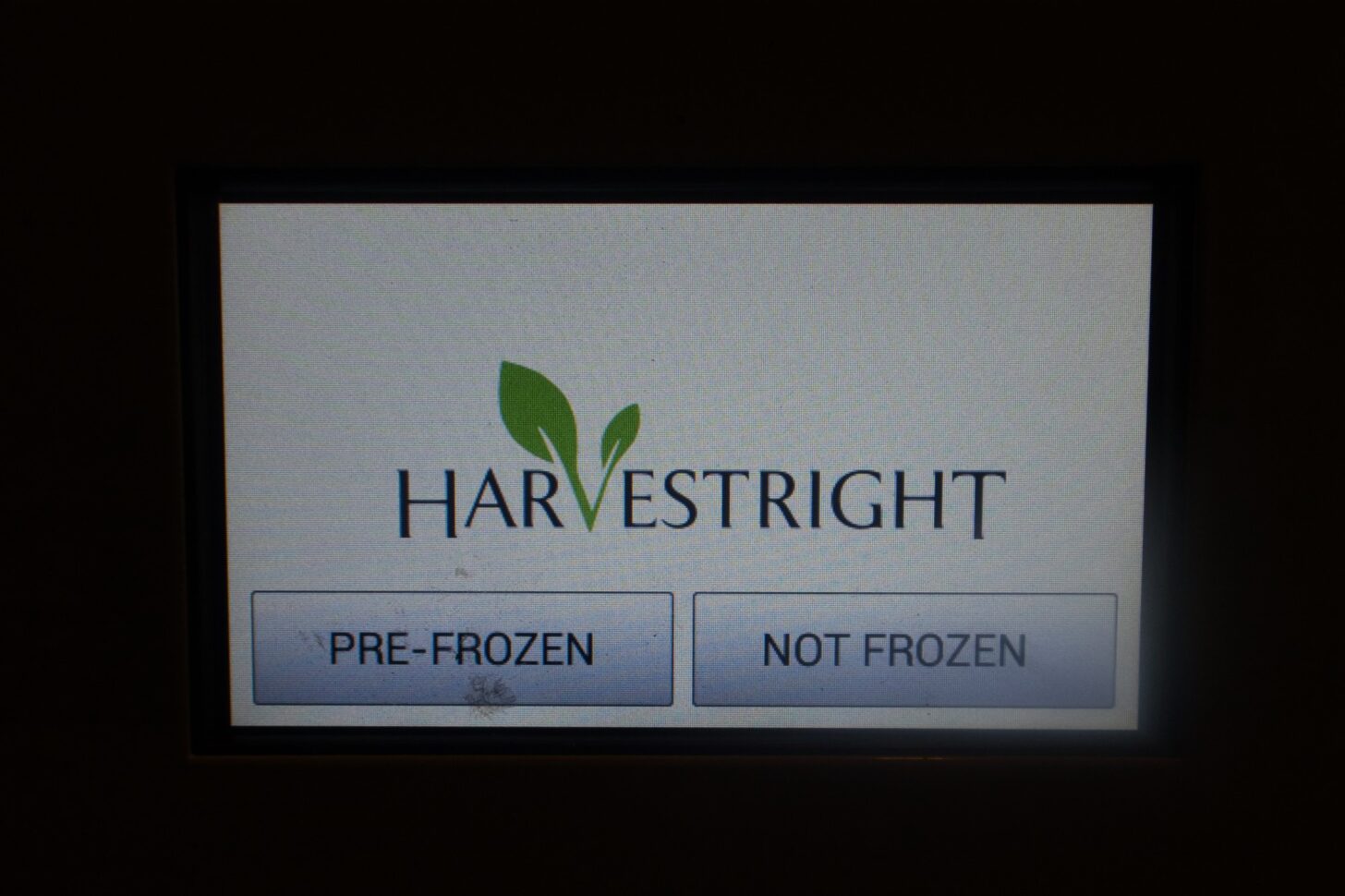
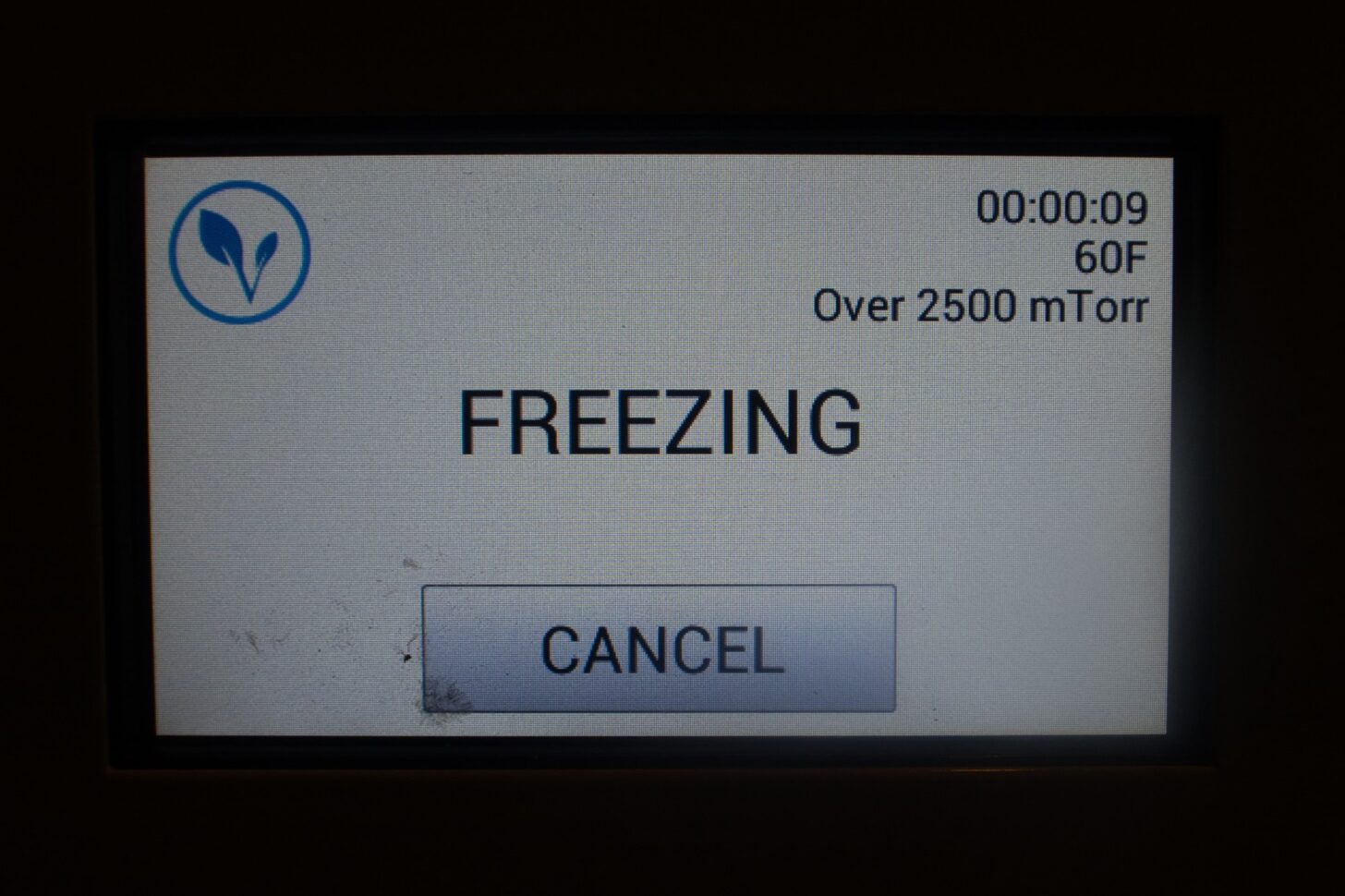

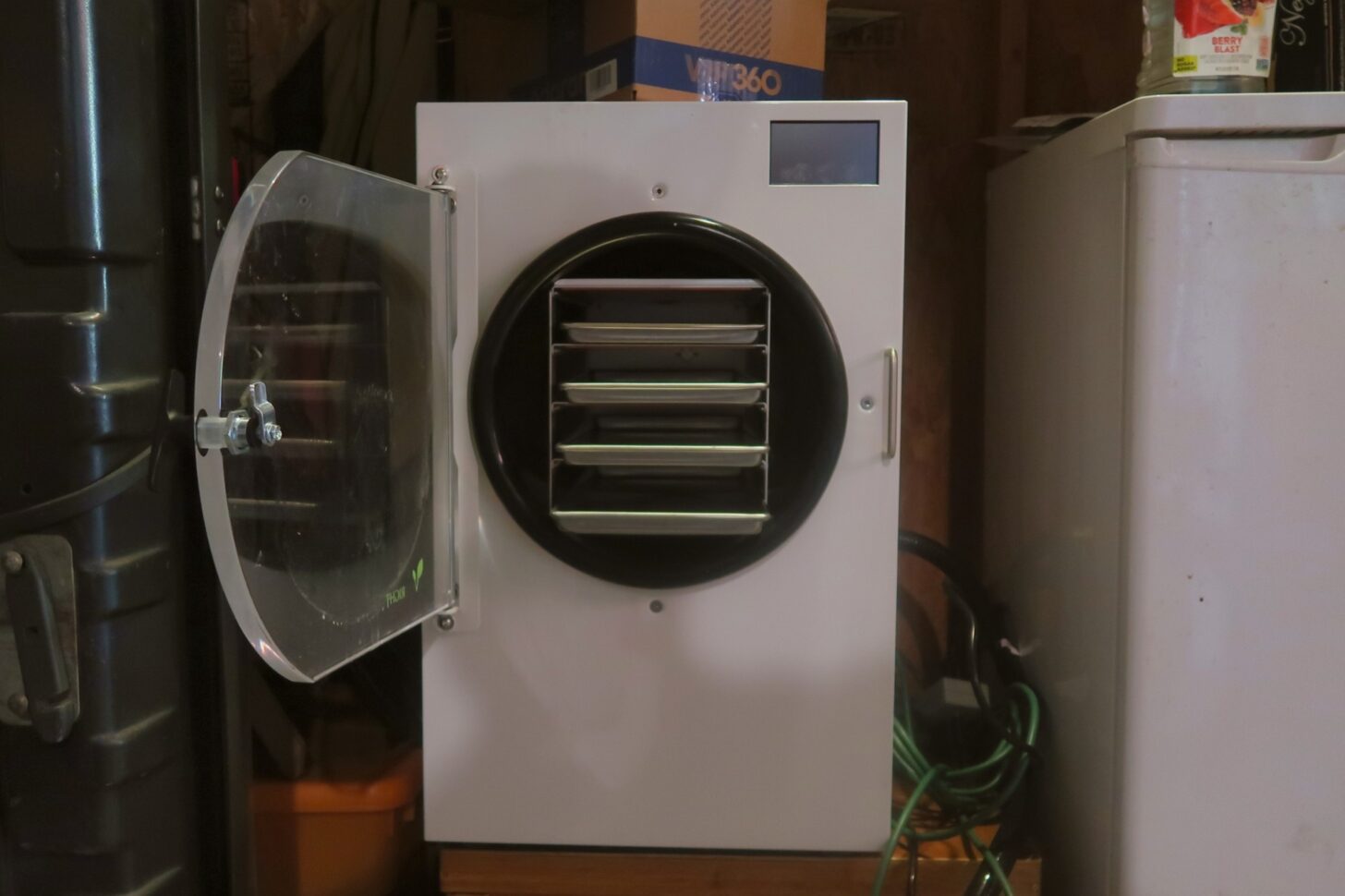
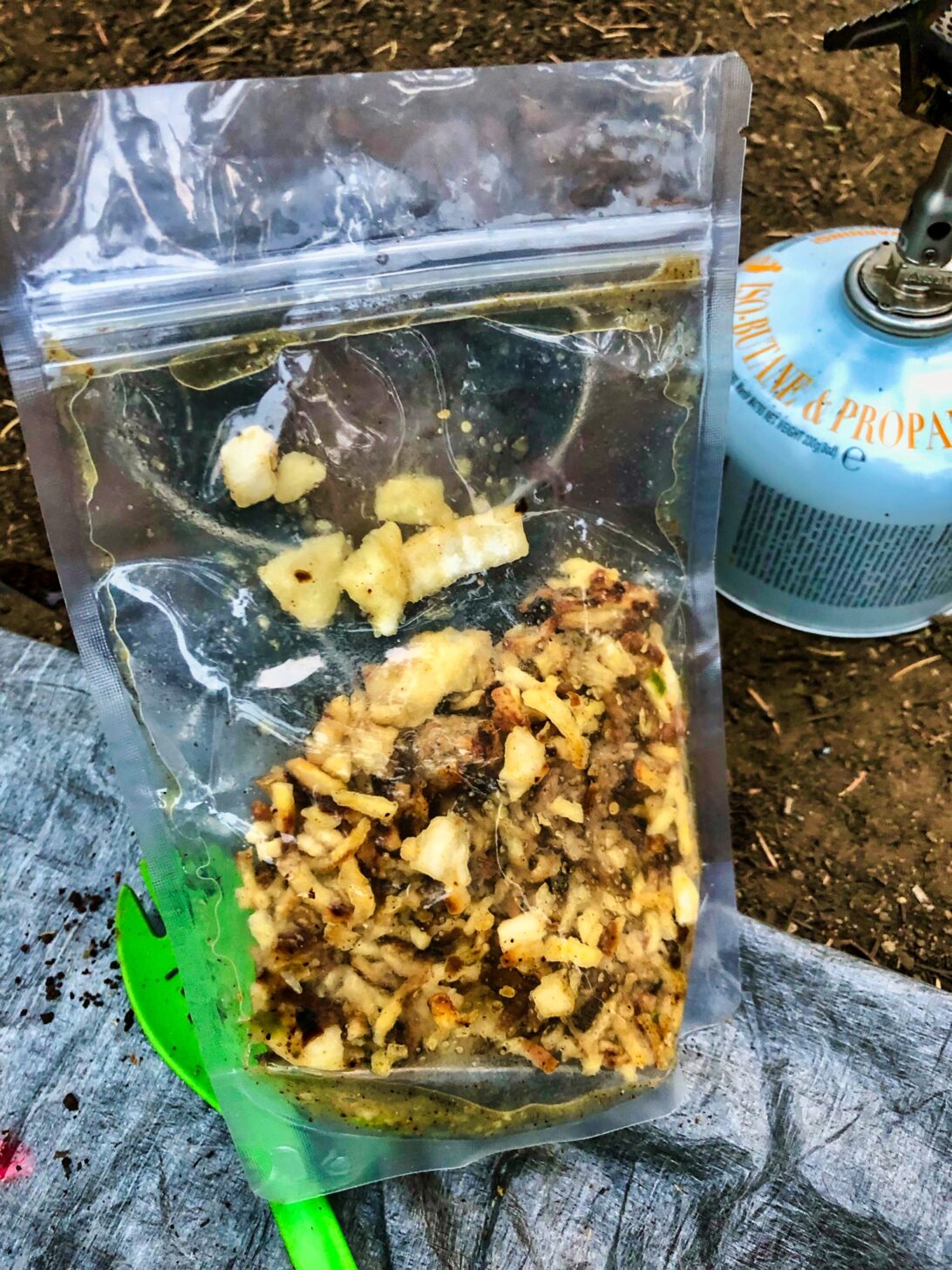
The Takeaway
The Harvest Right Home Freeze Dryer unit delivers on food quality, versatility, and ease of use. If you can afford the up-front investment, it will change your life. OK, maybe not your whole life, but it will change how well you eat on the trail. Stay tuned in 2022 for a series of articles that discusses freeze-drying science, best practices, and recipes.
Related Content
- More by Drew Smith
- Listen to our Making Your Own Backpacking Meals podcast
- Read our two most recent backpacking gear guides – My Year of Lentils: A Survey of Packaged Vegetarian and Vegan Backpacking Meals and Dehydrated and Freeze-Dried Backpacking Dinners
DISCLOSURE (Updated April 9, 2024)
- Product mentions in this article are made by the author with no compensation in return. In addition, Backpacking Light does not accept compensation or donated/discounted products in exchange for product mentions or placements in editorial coverage.
- Some (but not all) of the links in this review may be affiliate links. If you click on one of these links and visit one of our affiliate partners (usually a retailer site), and subsequently place an order with that retailer, we receive a commission on your entire order, which varies between 3% and 15% of the purchase price. Affiliate commissions represent less than 15% of Backpacking Light's gross revenue. More than 70% of our revenue comes from Membership Fees. So if you'd really like to support our work, don't buy gear you don't need - support our consumer advocacy work and become a Member instead.
- Learn more about affiliate commissions, influencer marketing, and our consumer advocacy work by reading our article Stop wasting money on gear.

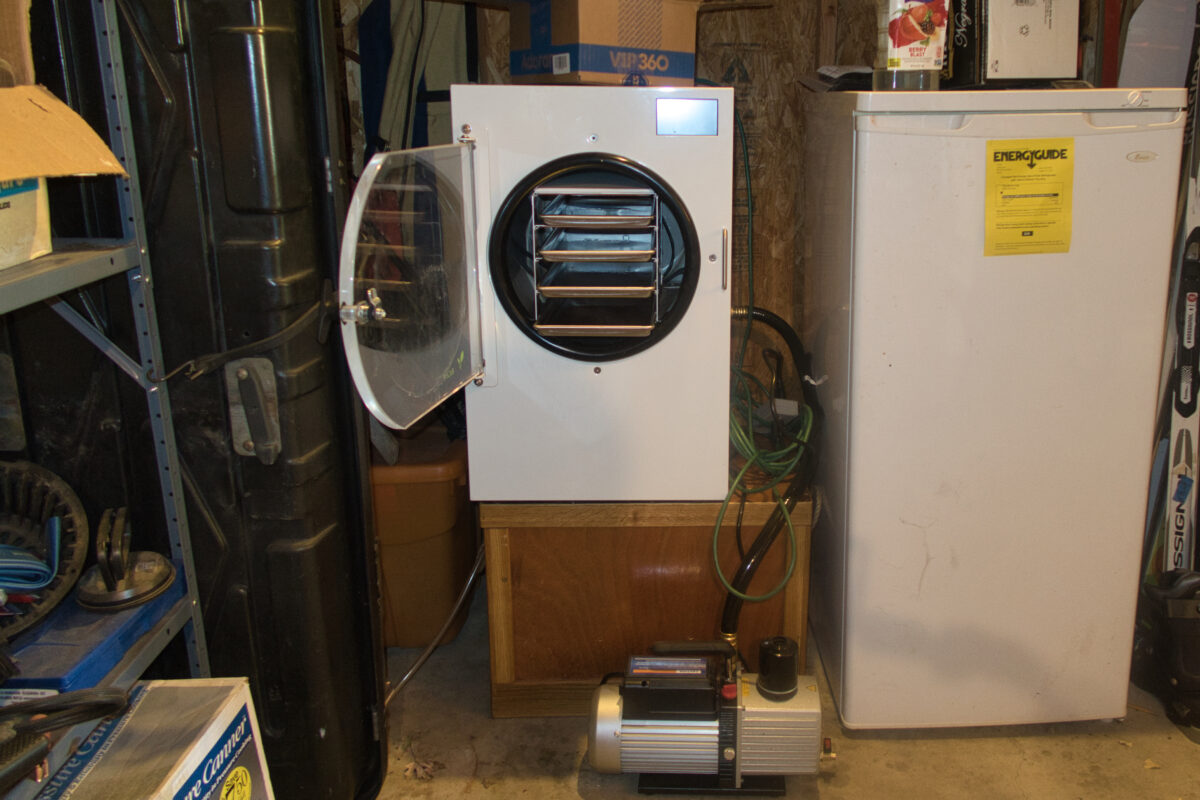


Home › Forums › Harvest Right Home Freeze Dryer Review